How to Effortlessly Unleash Your Creativity and Insight Contributed by: Georgia Ellis Getting out of bed usually takes me a while, and I used to think this was a bad thing. Why aren’t I jumping out of bed like everyone else? I had pretty good sleep hygiene practices and usually get between 7-8 hours of sleep… surely I can get up straight away… but I couldn’t… I even began to feel a little guilty at my slower start to the day, especially when people like Mel Robbins (American podcast host, author, motivational speaker, and former lawyer) devoted an entire book to “The 5 Second Rule” - a simple technique to encourage us to leap out of the sweet warm comfort of our beds and go get our goals… Robbins used it to help herself get out of bed, back in her tough days. She found that if she counted backwards; “5-4-3-2-1 and ACTION!”, she would stop making excuses and jump right up. I won’t deny that having a hard time waking up in the morning could be the result of the natural effects of sleep inertia, your sleep habits and schedule, or sometimes other conditions… but in my case, there was something else going on, something that seemed to leave me feeling inspired and set me up for the day… I noticed that if I lingered in bed for roughly 10-15 minutes upon waking, something magical began to happen…Ideas and solutions would bubble up from within my psyche… ideas for programs and offerings, solutions to problems I was facing and even ways to have challenging conversations I was avoiding would present themselves.
As I lay there, I seemed to have access to what Napoleon Hill refers to in his seminal work “Think and Grow Rich” as “Infinite Intelligence”. According to Hill, Infinite Intelligence refers to a universal, all-encompassing intelligence that exists beyond the realm of human understanding. It's a form of divine intelligence that is accessible to individuals through their subconscious minds. Hill suggests that Infinite Intelligence is the source of all inspiration, creativity, and knowledge. It's the force that can guide individuals toward their goals and desires if they learn to tap into it effectively. Is this what I was tapping into as I lingered longer in bed? According to Hill, we can communicate with and receive guidance from this infinite intelligence, which can help us achieve our goals. Let's face it, as business owners, managers, and leaders, we're constantly striving to innovate, solve problems, and drive success. But what if we are overlooking one of the most powerful moments for creativity and insight that happens not in the boardroom, or brainstorming session but in the quiet moments between sleep and wakefulness? Picture this: you wake up in the morning, the soft glow of dawn filtering through your window. Instead of immediately leaping out of bed and diving into the day's tasks, you take a moment to linger, to let your mind gently transition from the depths of sleep to the clarity of wakefulness. It's in this seemingly idle moment that magic can happen. The science behind this phenomenon is fascinating. As we transition from sleep to wakefulness, our brain undergoes a subtle but significant shift in activity. During deep sleep, our brain produces delta waves, associated with restorative rest. But as we awaken, our brain begins to generate alpha and theta waves, which are linked to relaxation and creativity. It's during this transition that our subconscious mind comes to life. While we sleep, our brains are hard at work processing memories, emotions, and even problem-solving tasks. Ideas and insights percolate beneath the surface, waiting for the opportune moment to emerge. By taking a few moments to linger in bed upon waking, we create a space for these ideas to land. We tap into our subconscious reservoir, allowing creativity to flow freely. This relaxed state of mind, coupled with the transition in brainwave activity, sets the stage for breakthrough thinking and innovative solutions. But for some, lingering in bed can be torture when our lives are full of work and home life responsibilities that don’t allow for an extra 10 minutes under the blankets. If you want to take advantage of this powerful state without staying in bed, try delaying devices, screen time, and coffee until after low cognitive activities such as yoga, a shower or a walk. These activities have been known to also produce ideas and insights. There is also the danger of staying in bed too long as you will naturally move out of the Alpha/Theta creative state into the more active Beta brainwave, where your analytical mind and inner critic will start to emerge. So, if you can take a few extra moments in the morning, be sure to get up and act on the ideas and insights that emerge. For me, I usually head straight to my home office and write down the ideas that present themselves, then go about my morning routine and return to my office to take inspired action. Point in case, the idea for this article bubbled up earlier this week, I made a note of it when I got up, did some research, and scheduled today to write and post it. Remaining in bed is not just about the science. It's also about mindfulness and reflection. In our fast-paced world, we're often guilty of rushing from one task to the next without pausing to breathe. By lingering in bed for a few moments each morning, we practice mindfulness. We become more present, more aware of our thoughts and feelings. This mindfulness sets a positive tone for the day ahead, enhancing our overall well-being and mental clarity. So, the next time you find yourself tempted to leap out of bed as soon as you wake up, whether you feel like it or not, like the famous influencers are telling us to do, consider this: don’t reach for your phone, but give yourself permission to linger for just a few moments longer. You might unlock the key to your next big idea. Embrace the transition from sleep to wakefulness and watch as creativity and insight flourish. Your success may just depend on it. Embrace your Artificial Self Contributed by: Georgia Ellis “I want to discover my Leadership style” said one participant at the kick off masterclass of the 22 week emerging leader program - The Future Ready Leaders Toolkit. What she said was in response to my question “What are your intentions for the program and why are you here?” The other participants began to nod in agreement. They too wanted to find their "true selves". Sure this sounds like a great goal… (and one that I hear a lot in the work I do) "Find out who I am as a leader" (or as a human)… "Uncover my authentic style"…. But... is it really a worthy goal? In the pursuit of leadership or personal excellence, we often encounter the notion of authenticity as a guiding principle. We're urged to be true to ourselves, to lead and live with integrity, and to remain genuine in our interactions. However, a deeper exploration into the philosophy of human nature challenges this rather simplistic view. In Michael Puett and Christine Gross-Loh's book, "The Path", they delve into the writings of various Chinese philosophers including Xunzi, who distinguishes between human nature and artifice. Xunzi asserts that human nature, while innate, is not inherently virtuous. Instead, it's the product of conditioning and societal influences. He argues that true human nature is revealed when our innate inclinations are refined and shaped through conscious effort – what he terms as "artifice." Xunzi's perspective resonates with the timeless wisdom of James Allen's "As a Man Thinketh." Allen emphasizes the power of thought in shaping one's character and destiny. He suggests that the noble and god-like character we aspire to isn't a product of chance but the result of deliberate cultivation through right thinking and sustained effort. At first glance, these philosophies may seem contradictory to the modern notion of authenticity in leadership and finding our true self. After all, aren't we encouraged to be genuine and true to ourselves? However, upon deeper reflection, it becomes apparent that authenticity, as commonly understood, is a myth. The idea that we can simply be ourselves without any external influence or intentional effort overlooks the complexity of human nature. Xunzi ‘s and James Allen’s ideas shaped my response to the participants who wanted to ‘discover’ their leadership style… I challenged them to think a little differently, instead of discovering who they had become because of external forces, I invited the to ‘create’ who they wanted to be as a leader, empowering them to let go of any limiting beliefs or ideas that may have been handed to them from society, and to self author their leadership journey. As leaders (and humans), we're constantly navigating various roles, responsibilities, and expectations. We interact with diverse stakeholders, adapt to changing circumstances, and strive to inspire and motivate others. In this dynamic environment, being true to a static, unchanging self is neither practical nor desirable. Instead, we must embrace the concept of artifice – the conscious effort to cultivate our character, refine our skills, adapt and shape our leadership style. This doesn't mean being inauthentic or pretending to be someone we're not. Rather, it's about recognising that our authentic self is not fixed but fluid, shaped by our choices, experiences, and deliberate actions. Just as an artist crafts a masterpiece through skillful manipulation of materials, we must also create ourselves through intentional practice and refinement. The process of self-creation requires humility, self-awareness, and a willingness to challenge our assumptions and beliefs and become aware of our biases. In essence, authenticity isn't found in staying true to some unchanging essence of self, but rather in the sincerity and integrity with which we engage in the ongoing journey of self-discovery and growth. It's about aligning our actions with our values, inspiring trust through consistent behaviour, and fostering genuine connections with others. So, as you bust the authenticity myth, you liberate yourself from the constraints of the what was and embrace the transformative power of artifice with “what if” and “who could I be”. I invite you to cultivate the best version of yourself through self reflection, choosing who you want to be, conscious and persistent effort, continuous learning, and a commitment to being the best version of you so, you not only fulfill your potential but also inspire others to do the same. Opportunities for to Self Discovery and Continuous Learning
Contributed by Layla Wyatt Future Market Insights asserts that the Australian leadership development program market has a projected CAGR of 8.9% from 2023 to 2033. Notably, technology-driven learning methods are increasingly adopted within leadership development programs. "Leadership is not merely giving orders; it's about inspiring, guiding, and adapting to the future. Embrace technology-driven learning to cultivate extraordinary leaders," says business expert Olivia Jones of Askfunding.– Australia's top loan and financial provider. Leadership isn't just about giving orders and making decisions; it's about inspiring, motivating, and guiding the team toward success. Dive into how coaching and professional development programs can turn ordinary leaders into extraordinary ones. 1. Developing Soft Skills with a Smile Coaching programs often focus on soft skills like empathy, active listening, and emotional intelligence. It's like the chocolate chips in the leadership cookie—they make the whole experience sweeter! Coaching helps to understand your team's needs and motivations, fostering a positive work environment. It builds trust among members and a sense of belongingness 2. Boosting Self-Awareness Coaching programs often include self-assessment tools and exercises to help you better understand your strengths, weaknesses, and blind spots. It's like having a mirror that reflects your leadership persona to you. It leads to confidence, more informed decisions, a tailored leadership style, and realistic goals. It's like upgrading your leadership armor to withstand any challenge! 3. A Playbook For Success Professional development programs help leaders develop a deeper understanding of their roles through workshops, seminars, and interactive sessions. It's like attending an action-packed boot camp where you hone your leadership skills, and instead of push-ups, you do problem-solving exercises. Life Reloaded, Superior Thinkers Toolbox, and Future Ready Leaders Toolkit are programs that can upgrade your leadership skills. Whether mastering new technology, understanding market dynamics, or refining your project management skills, these programs turn you into a leader who's always ahead of the game. 4. Highlights The Value Of Feedback Coaching empowers leaders by offering a safe space for self-reflection, feedback, and goal setting. It's a two-way street where a team can grow together. Through open dialogue and constructive criticism, coaches help leaders identify strengths and weaknesses and enhance their skills. They also hold you responsible for your commitments and track your progress. 5. Playful Experimentation And Innovation Professional development programs often encourage you to step out of your comfort zone and try new things. It's like having a laboratory where you can conduct playful experiments in your leadership approach. By exploring fresh ideas and taking calculated risks, you'll discover innovative solutions to old problems. It's like inventing your leadership magic! 6. Building A Support Network Coaching and professional development programs introduce you to a network of like-minded individuals. It's like joining an exclusive club where you can exchange ideas, experiences, and support, helping you tackle challenges with newfound confidence. Refine Your Leadership Style With Blue Chip Minds Coaching and professional development programs are the unsung heroes in the world of leadership.
A powerful ripple effect arises as leaders become empowered through coaching and professional development programs. Like a stone thrown into a pond, the impact goes far beyond the initial point of contact. Blue Chip Minds is an organisation dedicated to cultivating the talents of young minds and helping them thrive in the world of technology, science, and entrepreneurship. We help individuals develop essential skills and knowledge to become future leaders! Contact us to learn about Australia’s top global professional development solutions provider. Photo by Thought Catalog on Unsplash Contributed by Layla Wyatt The Australia and New Zealand School of Government suggests that mental complexity might be the key to unlocking better performance at work and a better quality of life. The more you understand your motivations, goals, thoughts, and emotions, the better equipped you will be to achieve your ambitions. "No one knows for sure, but many believe that having high mental complexity can confer several advantages in both work and life. This is because mentally complex individuals tend to be strategic thinkers, able to multitask and process multiple streams of information, which is a big asset to the workforce, especially in business industries," says business funding expert Shane Perry of Fund Spot—Australia's top provider of business funding solutions One facet of mental complexity is how individuals relate to the outside world and themselves. It depends on whether they can differentiate between the thoughts and feelings that they have and the thoughts and feelings that "have me." Developing mental complexity skills can benefit your personal and professional life. Here are some ways in which mental complexity can help you 1. Improved Decision Making Mental complexity can enhance your ability to consider multiple perspectives, anticipate potential outcomes and evaluate alternatives. This can lead to improved decision-making by enabling you to make more informed and effective choices. 2. Improved Ability To Work Through Difficult Situations Having a higher level of mental complexity can enhance your ability to work through difficult situations by enabling you to consider a broader range of perspectives, analyse complex information more effectively, and devise creative solutions to problems. This can lead to greater adaptability, resilience, and success in personal and professional settings. 3. An Increase In Clear And Effective Communication
4. Enhanced Capability Of Adapting To Changing Circumstances Mental complexity can enhance your capability to adapt to changing circumstances by enabling you to consider multiple perspectives and solutions. A more complex understanding of the world may better equip you to navigate unexpected challenges and identify opportunities for growth and learning. 5. Improvements To The Working Experience A greater mental complexity can lead to an enhanced working experience. This complexity allows individuals to think more critically and creatively, leading to better problem-solving skills and the ability to approach tasks from various angles. Start Developing Your Mental Complexity Developing mental complexity is not an overnight process but a critical component of personal growth and development. To start, expose yourself to different ideas and perspectives, seek diverse experiences, and challenge your assumptions and beliefs. It is also advisable to seek some help and guidance from professionals.
Blue Chip Minds established existing programs such as The Superior Thinkers Toolbox, Life Reloaded and The Future Ready Leader's Toolkit to inform people about what science is learning about the human condition and our untapped potential. We demonstrate to participants how to connect various maps, models and tools and use the concepts professionally and personally. Our method results in genuine transformation, increased mental complexity, long-lasting behavioural modification, and attitude adjustments. Contact us for more information. Contributed by Georgia Ellis Deciding is one of the single most powerful mental moves you can make to help solve your problems. Your entire life is dictated by the decisions you make moment to moment. The health of your mind and body, the well-being of your family, your financial stability, your career success, how much a person will trust you and, the type of relationships you develop, all depend on your ability to make sound decisions. In the workplace 60% of two thousand executives surveyed reported that bad decisions were as frequent as good ones. When it comes to our personal lives people are making as many bad decisions as good one too. Consider the people who haven’t saved enough for retirement, and if they have ‘squirreled’ some money away, they often erode their portfolios with fear-based decisions or short-term payoffs. This was evident in Australia in 2020 when due to the global pandemic, people were given the option to access their superannuation savings to help meet their living requirements, yet some people withdrew the funds for hobbies, sports equipment, entertainment or to purchase a car. Ultimately decisions bring order to our mind, and this order is then reflected in our life. British philosophical writer James Allen wrote: “No one can see you making decisions, but they will almost always see the results of your decisions.” - James Allen I personally subscribe to the notion that we live and die by the decisions we make, and that for the most part we can rectify any ill-informed decisions. There are, however, people who make a decision and if they don’t get the desired results, they feel like a failure. The thing is, failing doesn’t make anyone a failure but being quick to throw in the towel when the going gets tough… well maybe that could be seen as failing. Pushing through or quitting are both decisions therefore any lack of accomplishment or high levels of achievement on your part are both the result of your decisions. What I find interesting about decision making is that we often think we make well informed decisions, yet the truth is, unless we have high levels of self and environmental awareness, we will neglect to consider the hidden influences both internal and external that unconsciously impact our judgements. Most of us don’t realise that our important decisions could be swayed by seemingly meaningless external factors. In the workplace judgements and decisions can be swayed by who spoke first in the meeting, what day of the week it is or whether the local football team won last night’s match. At home we could be swayed by the room temperature, whether we’ve eaten or how much sleep we had. Internal factors that can impede our decision making include subconscious programming that has formed certain biases over time, our unchecked assumptions, and our short-term emotions. These internal influences often move us away from rational and intuitive processing and lead to uneducated often bad decisions. Our hidden influences are rarely considered in our everyday approach to decision-making. When we encounter a choice, we tend to not entertain alternative options, often analysing our options through the lens of our confirmation bias which is only seeing information that we want to see. While our short-term emotion tempts us to make the wrong decision for the wrong reasons. Consider the times you made an irrational decision in a moment of anger, frustration or even during those warm fuzzy feelings of new love. We can make better decisions by bringing these hidden influences to the surface. A method I have been playing with in recent times has helped me to begin to recognise and lean into my biases and assumptions. And I’d love to share it with you here. When faced with a decision our incredible brains filtering system likes to point us towards the information that backs up our beliefs and values. As we consider our options and form our assumptions, the confirmation bias begins to block out information outside of our beliefs, leading us towards self-serving information. It’s at this early stage of the decision making process that I try to become aware that this is likely happening to me and I go about testing my assumptions. Testing Assumptions doesn’t come naturally. That’s the whole point of the confirmation bias—deep down, we never really want to hear the negative information. When testing assumptions, the aim is to collect information that you can trust however the confirmation bias skews your assessment by making you prefer one option over another and homing in on favourable data. To overcome this blind spot, you can develop the discipline of considering the opposite of your initial instincts. (I’m trying to build this muscle and boy oh boy the confirmation bias force is strong) You can also test your assumptions by asking yourself this simple question: “Is what I’m assuming happening 100% of the time to 100% of the population?" You can also test assumptions with constructive disagreement either with another person, or if your critical thinking is dialed up, pull out your journal and disagree with yourself. A curious mindset is super helpful too, you can dial up your curiosity by asking yourself and other people probing and open-ended questions to uncover information that your biases had previously blocked. Our assumptions and confirmation bias doesn’t just affect what information we go looking for; it also affects what we notice in the first place. (Damn our brains are clever at making us see what we want to see!) Depending on the importance of your decision, you can challenge your assumptions with formal well conducted research. This type of research is a learned skill; it is challenging, nuanced, complex and time consuming. Most of us don’t have the time, skills, or desire to do proper research. Most of us have become lazy, relying on gossip, information from less than credible sources, social media feeds and the mainstream news for information to help inform decisions that in some instances can have far reaching and negative effects on our results and wellbeing. Ultimately, it’s up to you to determine the level of due diligence your decision requires, choosing what vacuum cleaner to purchase, deciding if you want to be the first to trial a medical procedure, or contemplating whether to take a job that requires uprooting the entire family and taking them to a foreign country all involve different levels of research (Unless you’re like me who spent way too long researching a recent vacuum cleaner purchase!) If you do choose to conduct research, it’s helpful to know what formal research isn’t. Formal Research is Not:
This type of ‘fact finding’ is confirmation bias. Any of these sources are quickly and easily ruled out when doing actual formal research. Beware of google algorithms, they too are heavily biased to point you in the direction of your search history. When a decision requires accurate balanced research, it’s important that you apply critical thinking to discern the facts from the fiction. You can do this by:
When faced with important decisions the type of analysis and research you do will help you to make better decisions. A healthy dose of scepticism can be a good thing especially when applied to the things we believe or want to be true, and not just to those things outside of what we believe.
Decisions can range from simple, to complicated, to complex and in our faced paced world we need to develop a level of awareness that moves us away from our entrained thinking and conditioned responses. We must widen our perspective so that we aren’t blinded to new ways of thinking and stop thinking that our 'expertise' means we always know what the best decision is or what is the right way forward. The truth is none of us have a crystal ball and we’re all making the best decisions we can with the information we have… just do your best to source reliable and credible information for the decisions that matter to you. I’m confident that you would have experienced being in a conversation with someone, and you get a sense that they aren't really paying attention to you, maybe it’s not a sense, maybe its downright obvious that their attention has been hijacked. You notice their eyes not meeting yours, they’re checking a device, or their attention span has been shortened from device overuse. They may randomly comment but what they say is totally irrelevant to the thread of the conversation. Personally, I find this not only frustrating, but it quickly dials down my respect and trust in the other person. By no means am I always an active listener angel, I notice my ability to pay attention diminishes when I am tired, stressed out or preoccupied with a project. I assume this may be the case for you too. What I have come to understand over time is that listening, like any other skill, can be improved and more importantly, our ears, eyes and for some of us our highly tuned empathic sensing provides a direct link to our hidden modes of communication. There is something magical about being fully heard by another human. When we share ideas and experiences unencumbered by judgement or having someone want to solve our problems we feel liberated and connected. The shared space creates a deep connection with the other person increasing mutual trust, respect and sometimes a feeling of catharsis. One of the biggest challenges in personal and professional relationships is creating space for effective two-way communication to occur. We need to manage both our internal and external environments effectively in order to do this. Manage your External Environment to connect deeply. One of the things I love to do is catch up with friends, not over a coffee, but for a walk-in nature. There are a number of reasons for this, the first being I love being in nature and all the benefits it brings, and secondly to create a space for undisturbed connection, nature has fewer background distractions that are often found in a café, no dobt you’ve experienced the clanging of coffee machines, conversations nearby reverberating off the tables, walls and floors, and the constant interruption of a staff member asking if the meal or coffee was ok. Consciously choosing where you meet, or talk is a great start, then removing any distractions is always helpful. If you’re at home, put the TV on mute, or turn it off, put your phone on silent and pop it away and out of sight and for those of you with smart watches, there is nothing more frustrating than having a conversation with someone who repeatedly lifts their wrist to check notifications or interrupts the conversation to share that their watch was telling them that mum’s calling, but they won’t answer it. So, maybe turn of your vibrating notifications too. When we converse over the phone or online, the same rules of deep engagement apply. Although you may not be in the same physical location, you can still be 100% present. Do your best to dial in from a location with as little distraction as possible away from pets, partners and children, turn off notifications and close down any other apps. When you do this your focused attention on the conversation will pay huge dividends for yourself and the relationship. When scheduling time to be with another human be sure to use the time to be fully present for each other and allow for the natural flow of the conversation to take you to a place where nothing else exists, there’s no time, no one else and nothing else matters. Notice your Internal Environment to be fully present. When dealing with other people being able to share your thoughts and wishes effectively is a something most of us can do with some level of success. But we also have to be open to what others have to say. The most important aspect of creating and nurturing relationships begins with active listening. Active listening is an inside job and can be a challenge to master. Most people confuse hearing with listening. This can lead to misunderstandings, arguments and frustration for both parties. If you are the one needing to be heard, and you’re not, you may end up lowering your respect levels and trust for the person you are with. We can't control other people’s actions or how they listen to us, however we can set boundaries or rules of engagement if someone is continually distracted when they are in our presence. (we’ll cover how to set boundaries in another article) Active listening is an inside job, it requires awareness, curiosity and compassion. Often when communicating, our inbuilt filtering system prevents us from really hearing the other person. Our beliefs create confirmation bias, our assumptions cause misunderstanding, our predetermined judgements about a person or situation may stir up a perceptual defence and our emotional state may lead to us to only hearing what we want to hear. We often think that it takes courage and confidence to share our deepest thoughts and to be heard, and it does, but it also takes awareness, courage and confidence to shut up and listen. Become a great listener Active listening is a skill any one can learn (and most of us need plenty of practice) Active listening will become your go to tool once you discover its power to improve personal and professional relationships. If you don't invest in becoming better at active listening, you will unconsciously discount other people’s perspective, ideas and experiences and they in turn will become emotionally distant (not a great thing in an intimate relationship) and they will no longer want to contribute to conversations or provide creative ideas (Impacting the progress of a business) Active listening basics The aim of Active Listening is to build respect, gather information, expand our perspective and increase understanding. In a world of constant distractions where our attention span has become less than that of a goldfish perhaps we can borrow a line from Mark Anthony’s request for attention in the play Julius Caesar, by William Shakespeare. Where he announces “Friends, Romans, countrymen, lend me your ears" It takes attention, focus and the willingness to accept what is being expressed without judgement. Can we lend our ears and eyes 100% to the person attempting to communicate with us? Here are 5 tips to help you become an Active Listener Angel. 1. Pay Attention
2. Show You're Listening
3. Compassionate Curiosity
4. Defer Judgment
5. Respond Respectfully
Active listening is one of the many communication tools we can use to build trustworthy relationships. Make time to listen to the people that matter in your life, it doesn’t make sense to be too busy to listen to someone else's story, opinion, idea or point of view. Listening is a beautiful gift of our most precious resource ‘time’ that we can give to others allowing humanity to thrive and grow together! #betterhumans p.s remember to have some fun! Contributed by: Georgia Ellis Contributed by Georgia Ellis In social gatherings I often find myself simply sitting and observing. I’m teaching myself to take in the surroundings and pay attention to what people are saying and doing. Overtime I have trained myself to notice the slight nuisances in a person’s tone of voice, their posture, the pace in which they speak and the words they choose as I’m observing I then get curious, I ask myself, I wonder what experience, information, values, and perspectives sit behind how they are showing up? The truth is I will never know how someone comes to their view of the world, this in and of itself doesn’t bother me. I may be able to better understand them and their motivation by how they are communicating, which can be helpful, if I get it right that is but what often raises a mildy disapproving eyebrow is when I hear people sharing an opinion or information that is not backed by personal experience or clear evidence. There is a word for this kind of communication, gossiping. These interactions usually lead to misinformation as a story is rehashed to suit a particular situation or the storyteller’s agenda; a little like the ‘Whisper Challenge’ the further away or down the line you are from the original source, the more likely you are receiving embellishments, untruths, or biased information. For the receivers of information who are not fully trained in the art of thinking, the misinformation can lead to misguided actions and reactions and can go on to produce unwanted ripple effects in their own life and the lives of the collective as misinformation or outdated ideas becomes a mainstream belief or world view. Each of us holds a unique and personal perspective of reality that is often formed through childhood as part of our induction into being human, and then as adults we unconsciously and consciously give certain people and organisations credibility and a halo of godliness, automatically believing what they say without question. For the most part we are influenced and manipulated by external forces, too lazy to think for ourselves. When we’re busy being too busy, it is much easier to scroll social media or turn on the TV and listen to a person dressed in a suit tell us how to think and act. Fortunately, there are a growing number of people who are no longer swayed by the glitz and glamour of a celebrity clambering for recognition, a politician trying to win votes, or a friends ego getting the better of them. These people are in the process of mastering the art of thinking. They usually do this through curiosity, discernment, trusting their intuitive nudges and an awareness of human nature. This skill, yes, it is a skill, is one that anyone can learn. Through practice we can learn how to ask the right questions to determine the motivation and credibility of our sources of information. In short, we can tune our ‘Bullshit detector’ to a high level of accuracy and know when and how to boldly respond in a way that doesn’t lead to conflict. Over time as a species, we have and will continue to collectively increase our mental complexity. This form of human evolution is often the result of an individual or group making a bold stand and challenging a commonly held perspective that has been inaccurately accepted to be true or mainstream. Unfortunately, sometimes their questioning or new perspective is subject to harsh and even life ending consequences, all because their view or questioning was not in line with the mainstream perspective, or they did not agree with those who claimed “authority” at the time. Humans are funny creatures, we fight so hard to hold on to our perspective, and when someone comes along with a different approach, idea or viewpoint that could change an individual’s life, increase an organisations productivity, or maybe even make the world a better place for future generations – we scoff, snigger, shoot them down, insult them and publicly ridicule them – go team human?! “The man with a new idea is a crank until the idea succeeds.” - Mark Twain We seem to quickly forget that thinking differently has been key to major shifts that have so profoundly influenced the advancement of our collective pursuits in philosophy, science, and technology. So, back to my social observations. Why do I do this? Why sit there and watch what’s going on? The truth is, I am trying to master the art of thinking. I am trying not to let my past dictate my future. I am having meta conversations with myself to try and allow my habitual, egotistic, biased thoughts and feelings to rise above my accepted norm in that moment. I am practicing how to entertain an enquiry that takes me outside of the constraints of my default perspective of how things are or are meant to be. I must admit, it’s not easy and I find myself asking the wrong question and saying the wrong thing at the wrong time. Real thinking is an artform that requires awareness, practice and time. The hardest part for me has been adopting a willingness to be wrong in a belief or view and learning from my misguided enquiries in the hope that I will be able to gracefully transcend ideas that once were deemed by myself or society to be absolute truth that have no relevance in the world we woke up in today. Throughout my life I have had various mentors (some alive some alive through the medium of books) some whom at the time I trusted impeccably, only to find as my mental complexity grew, as my values evolved, their views no longer served me or my changing worldview. Right now, I have a few mentors who offer me a wide angled view of the world and who unbeknown to them, continually challenge my world view. They are teaching me to think, to discern and to test my assumptions. I must admit this process is often a destabilising and challenging experience as I muster up the courage to unlearn and to think differently. It’s exhausting! Pass me the remote for some six-o’clock news someone please. But wait, there is more to this challenge of shifting perspective. As I am begin shifting my personal world view, and feeling off kilter, skidding between guard rails, the people around me assume I’m the same me. They believe I hold the same view, values and beliefs that I did yesterday. This becomes a next level challenge as I emerge in my familiar surroundings, looking the same on the outside, with an internal updated operating system that no-one is aware of unless I open my mouth and talk. Friends and family must feel like they’re sitting down at their trusty PC only to switch it on to find it’s using an Apple operating system, they are lost, confused, and don’t understand the language I now speak. Interactions become disjointed and frustrating to everyone especially those who may not agree with or understand my emerging view. It feels lonely, I want to curl up in the foetal position and suck my thumb until it’s safe to come out again. Although as enticing as it seems, hiding away is not courage, it’s an act of fear and potential conformity where nothing changes, my world stays the same and I won’t make a positive difference sucking my thumb. In his unified science course, Nassin Haramein Founder of the Resonance Science Foundation writes, Historically, thinking differently amidst a strongly held philosophic and scientific set of beliefs has proven all too often to be a difficult road to walk. The authority structures of the time will typically put-up great resistance to new ideas, and the individuals and groups who are willing to voice these new ideas are challenged or allegedly “debunked”, in many cases without either an unbiased evaluation of their ideas or a reasonable argument against them based upon such an evaluation.” According to Abraham Maslow, one of our deepest needs and drivers is the need to fit in and having a point of view that is at odds with those we live and work with can feel threatening to our survival. One way I see around this is for as many of us as possible to dig deep and be bold - together. Yes, we will come up against friends, family, colleagues, policies, procedures and structures that feel like a form or resistance to a new and often better way of thinking and being. We may feel like an oddball, with no tribe to fit in with and become discouraged to stand up to an injustice, or an outdated workplace policy, in some instances we may feel threatened and even begin to question our own conclusions and logic and may even start to judge ourselves as being stupid for even thinking something different. It’s hard to swim against a current of arguments that appear to be truth and accepted as ‘right’ in our culture. This is the wave some of us are riding now as new ideas and ways of working are emerging and confronting long held collective views, can we ride the wave arm in arm? If we see someone swimming against the current, can we throw them a perry buoy in the form of encouragement, being interested in their point of view and using curiosity to validate their position with them? I don’t have all the answers, but I do have some questions that we can ponder together.
How to practice the 'Art of Thinking' to widen your perspective. Shifting your perspective is a deeply personal experience. It’s up to each of us to pay close attention to where information is coming from and our personal relationship to the information and decide for ourselves what feels true.
Continually shifting my perspective and being open to new ideas is an ongoing learning process for me, by no means am I perfect. Over time I have noticed that as each of my outdated perspectives fall away and as I listen deeply and pay close attention to the motivations of those around me, my life has become richer, and I have a deep sense of freedom and faith in a better future for everyone. As you navigate life, I invite you to become a ‘Virtuoso of Thought’ by asking yourself some questions during your interactions with other people and sources of information:
When you decide to open your mind and start shifting your perspective, you begin to positively contribute to a greater organisational, community or even global shift. #betterhumans Contributed by Caterina Viterale Reframing responsibility to help organisations, teams and individuals be better humans Until recently, I have had a tug-of-war like relationship with the idea of responsibility for as long as I can remember. This recent shift felt like I was handed a key to a new understanding that nested in my mind and then expanded to create a form of internal freedom. As if handed down by the magical powers that be directly into my awareness, I was offered a unique and transformative way to reshape how I look at, and understand, responsibility beyond what I had thought previously, which was always associated with a role, title or position. I now consider this a framework, a concept, a potential mapping of sorts, for how we can navigate ourselves and each other through the terrain of modern living and all of its complexities, and in this article I will be sharing it with you. So, grab yourself a glass of your favourite beverage, sit back and let’s go on a little meditative and contemplative ride of curiosity and wonder together about how we can potentially reshape how, and what, we think when it comes to responsibility. ContextResponsibility, for a very significant amount of my 32 years of life, has been an extremely heavy, yet liberating, topic and experience for me. On a personal level, it’s been extremely burdening. On a professional level, I have always thrived with some form of weight on my shoulders – a team to manage, a goal to hit, something to organise, pieces to put together. Recognising why I have these two experiences of the same topic was something I really struggled to understand and master. Why was I exceptional at managing a team, being a good leader, and exceeding professional goals, but I could barely manage my personal life? Why was it different? I couldn’t figure it out because the weight of my personal responsibility was too heavy for me to be able to look up, look around, and see things differently. Then, one day, a few months ago whilst meditating, an entirely new way of looking at responsibility came to and through me, right when I was no longer looking to understand it. And this is what I will share with you. The New UnderstandingResponsibility. Response-ability. “The application of one’s ability to provide an appropriate response to any moment or situation, whereby one has, or is perceived to have, something that is of benefit to someone or something, including themselves”. Sheesh. Good, right? Let’s highlight the many important, and specific, elements to provide us with the guidelines for putting this into practice, and break down this new way of thinking about response-ability. Application: because the rest of the definition becomes completely useless if we do not APPLY it. Simples. Ability: ability for humans is never one dimensional. It is both within and between the elements of physical, emotional and mental that we may or may not actually be able to do something. I may know you have the intellectual capacity to fulfil a task based on past experience, but not know that you’re physically unable to do so in this moment because you’re exhausted from lack of sleep as your new born child is unwell. Or because you’ve started seeing a therapist about that childhood trauma no one knows about and it’s emotionally and physically exhausting you. We may have assumptions about someone (colleague, friend, partner, parent, employee, neighbour, person at the checkout) with regards to their ability to fulfil a task, without considering the infinite number of factors that contribute to one’s ability to do so, even if it appears, they are, in fact, able to do so on face value. This is where the co-founder of the Flow Genome Project Jamie Wheal’s ‘Playground Rules’ provides a handy rule to live by: #2 “Benefit of the Doubt (Everyone's Doing Their Best!)” Appropriate: This is about emphasising whether or not we have consciously assessed the situation and considered the response we are about to make is, in fact, as appropriate as we can assess it to be. This requires a certain level of mental development and complexity - specifically the utilisation of a particular mental faculty, ‘perspective’. How many perspectives outside of our own have we considered in our analysis of an appropriate response? What internal space is this analysis coming from? Are we angry, tired, hungry (or hangry), overly excited, focused on one perspective? Does it feel rather cerebral, meaning, are we just thinking about it intellectually, or are we allowing for things such as empathy and compassion to enter our consideration of what’s appropriate? The findings of our internal investigation provide important reflections and considerations for how we may expand what we consider appropriate. Response: without getting into technicalities of dictionary meanings, I feel the significance of response is that, in embodied practice, it is very grounded. It is clear, open, attentive. It is a state of assessing as much available information as possible whilst knowing that even in this state we are unable to know absolutely everything. Thus, remaining open to the information we receive as a unique opportunity to add to our knowledge base. I want to emphasise also what it is not, and more specifically what it isn’t in comparison to a reaction. Typically, when using ‘reaction’ in conversation, there is an assumption that the reaction was a direct and immutable outcome as a result of a specific cause that is often emotionally explosive; it’s automated and without control or influence. This is definitely not what I feel a response to be. Response seeks to find the causation(s) of the present moment, assesses it in as many ways as it seems appropriate that is the most expansive and inclusive, then consciously CHOOSES an outcome. A moment or situation: this brings the mind’s attention, and the practical application of this response-ability principle, to the here and now (whatever present moment we find ourselves in). Not yesterday, not tomorrow, not in five minutes time, nor the previous encounters with this person/s in the environment we are in. It’s the here and now, which requires a specific state of mind that has the ability to absorb it for what it is, and not what it has been previously or what we anticipate it to be. Has, or is perceived to have: sometimes we know what we have, and sometimes we need others to provide the information to bring it to our attention. This is particularly useful in times when we forget that we have a skill, resource or piece of information that is so automatic in our existence that we forget we have it. Take speaking our native language as an example. Most people use it so frequently and have become so acquainted with its existence and use that they forget that it is, in fact, a skill that could be used to help others – a foreigner, a blind person who is unable to read/see something, or even as a means to voice an injustice/issue that requires attention. Something: it’s important to remember that something isn’t always an object – it can be an idea, a word, a resource, and in fact, something can even be a nothing. The thing that you may be able to provide as an appropriate response is, well, absolutely nothing (silence, for example, when listening to someone share their story). Benefit: most often, we are used to considering benefit as strictly on the positive side of the negative to positive spectrum. It is important to note, however, that benefit may also include an outcome where there is a reduction in the negative, thus, moving the indicator within the spectrum closer to the positive side and away from the extreme negative side. Someone, or something: we live on a planet, that doesn’t just have people. It has objects, other living organisms, constructs, ideas, beliefs, houses and e-v-e-r-y-t-h-i-n-g else that exists outside of our present here and now. Therefore, it isn’t just about responding to people within a moment or situation, it is also guiding us towards paying attention to, and considering the benefit of, e-v-e-r-y single thing that exists. Including ourselves: well, because, most of us just don’t think of ourselves, especially when it comes to responsibility! It’s often housed in the environment of others – our roles and duties to others and things outside of ourselves. This can create an array of negative consequences. From illness, to stress, to poor health, poor sleep, no money, poor relationships, minimal joy, and everything else that you can think of when you take a moment to reflect on all the ways you’ve neglected yourself – your body, your wants and needs, your desires, your feelings and emotions, your experiences. Now that we’ve delved a bit deeper into the elements of this alternative perspective of response-ability, let’s ask a really important question. Why is this even important?If we consider many of the issues we face globally, much of it stems from a lack of response-ability. Ask yourself: “How many times have I seen someone (including myself) dismiss an idea or action - a response – when something clearly needed to be done?” For example, a task at work that wasn’t part of your “job title/duties” so you ignored it; a conversation you avoided having about something that needed addressing but was put off and the issue became far greater than it needed to be. The list goes on. And when we collectively leave a large amount of small things unchecked or ignored, they build to HUGE mountains of things that suddenly seem too overwhelming. I mean, just take a look at the news over the last year, where do we begin? Racism? Global warming? Women’s rights? Trans rights? Education? Health? Pollution? Where? More deeply, if we consider the global social, economical, political and environmental landscape, a significant portion of it involves us needing to pick up the pieces of other people’s lack of response-ability - we are constantly having to utilise our time, energy and resources rectifying the consequences of others behaviour, decisions and actions, as opposed to showing up in the world and living a life that is full of richness and the freedom to create playfully. We are devoting the one resource that we have always known to be finite and irreversible in the physical plane – time – to resolving issues as a result of a lack of response-ability of our fellow humans in the past, instead of basking in the playfulness of existence itself. And, sometimes there’s no stronger blockage than a perception of finite time that limits our ability to be conscious and aware in our actions. This is an important segue into an often ignored, yet extremely influential element that can dramatically impact one’s ability to practice response-ability. Burdened people burden people.Photo by Ben White We’ve all heard the common phrase: ‘hurt people hurt people’, but when do we consider the reality that often, burdened people burden people? Think about the Manager who is overworked, stressed out, and feeling overwhelmed by the disproportionate ratio of their skills to the tasks required of them by those above (and sometimes, below) and so unfairly demands more from those they manage and increases their workload? The single parent, working their asses off (or are unable to), struggling to overcome a past trauma and so demands more from their child, intentionally or unintentionally? The person in a position of power who is burdened by a personal situation, who comes to work carrying that weight into a decision-making process, and then chooses the less personally consequential option that has an increased workload on others, as opposed to the harder, but more appropriate, option? What happens in all of these situations? The person burdened, begins to unwittingly burden those around them. Whether by having to take on tasks, or holding space for them to react to their stresses (as opposed to processing their emotions in a healthy manner), the weight gets distributed to others who are already carrying the burden of the people and environments they’ve previously been in. And so the burdened becomes the burdener. When we’re burdened, we cannot perform optimally, and at our best; we cannot give to ourselves, each other and the here and now moment we find ourselves in. Essentially, we cannot be response-able.So, what can we do?
2. Remember that during times of emotional, physical and/or mental internal imbalance, people are not at their best, and therefore, we need to recognise the inability of the other person to provide what we believe to be an appropriate response. A potential tool for these moments would be to become curious and ask the person we are about to request something from, “what is your current energetic, emotional, and physical capacity?” We could even go so far as to ask them to rate their levels out of 10 or 100, and if used in a team environment, whoever has the highest score may be able to take the reins for a moment to allow others to regain their equilibrium. 3. Use the description of ‘response-ability’ as a principle to live by, outside of roles, duties, status and labels – let’s perceive it as a guiding principle. The InvitationHere are nine ideas I invite you to consider to help make the shift from responsibility to response-ability a little more easier collectively. 1. It’s a paradox that we must develop in to We must both let go of, and embrace, the past and future in helping us navigate the now. In the context of providing an appropriate response, we must clear ourselves of the past conditioning and future assumptions that blind us to providing an appropriate response, whilst also utilising past knowledge and holding future ideas and plans to help us navigate the situation to the most appropriate and beneficial outcome. This can be challenging for some, as it requires a high level of mental complexity that many of us are not yet capable of, or are still developing into. Therefore, we must consider this a journey towards response-ability mastery on both an individual and collective level due to the navigation towards, and transformation to, living this as a guiding principle. Developing self awareness through mindfulness practices such as meditation can assist us in the optimisation of processing throughout the here and now and maximise the ease at which we can practice this principle fully. 2. We’re all going to be students, and teachers No one is a master at this, nor will they be. Every moment we are growing, evolving and changing, as is everything else that exists, and therefore, there will always be more to learn, to adapt to and to consider. What’s that playground rule again we need to follow? “Benefit of the Doubt (Everyone's Doing Their Best!)” 3. It’s never going to be 100% There’s ALWAYS going to be some form of “problem”. This perspective isn’t about solving and eradicating all of the tension in the world, it’s about limiting the amount of unnecessary realities we’re creating that require subsequent solutions - the burdened burdening others included. We must ensure our thinking going forward is built upon a foundation of knowing there is no final and complete utopian destination. 4. Try to refrain from worrying about over there, focus on your here Until your ‘here’ is functioning optimally and beneficially, refrain from utilising your valuable energy, time and resources on the “over there” situations – trust that they are being dealt with by those there, experiencing their own here and now within it and utilising these same principles. Make sure your house is in check first, then go out and help others optimise theirs. 5. There’s no reason not to play and have fun This piece was written deliberately with a hint of playfulness to provide a glimpse of the light-heartedness that we can bring to the spaces we occupy. It may feel as though we have a big job to do – personally, professionally or collectively as a human race - but if we bring an element of play and child-like wonder, we can get the job done in a much faster and cohesive manner. Maybe we can start asking ourselves “how can I make this a more enjoyable process?” 6. Trust ourselves, each other and the bigger picture – all of which we know very little about The greatest of minds have always proclaimed that the more they know, the more they know not. Let’s take that piece of advice on face value and act accordingly. 7. We have a choice Response-ability is a tool we can use to help us CREATE the world we want to live in – it gives us agency, sovereignty and conscious engagement, and not simply be a passer-by in this great adventure that is life as a human on this planet. Let’s CHOOSE to be the person/s we want to see in the world. 8. Not everyone is as keen as you are When we think something is important, we forget, or simply fail to consider, that whilst we are having an experience right now of something having our focused attention, so too are the people around us who we are interacting with. We must remember that no matter how important or significant we feel and believe, or even know, a thing that is requiring our attention is, we must accept and forgive those who cannot give us the energy, focus and attention we may want or need. 9. Response-ability is always a 100% game If you are conscious, and in a body that is able to move with conscious engagement, then you are 100% responsible for your response-ability - remember, existence equals responsibility. No situation is about breaking down who contributed what percentage of 100% of the outcome. It’s about taking personal accountability for our own actions, choices, and behaviours (including what we do not do), and recognising that we are 100% responsible for the contribution we made in any given moment. We shift our focus and analysis from “they did A, B and C!” (usually blame) to “what did I do here?” (self empowerment and mastery). ConclusionThe more I think about this, the more I feel there’s so much to say, develop and find clarity on how the actual practical application of such a framework fits across our lived experiences.
Though, essentially, I think it can be summed up by being more considerate of others and the environments we find ourselves in, and shifting our focus and attention from other people’s choices, actions and behaviours to our own. If we at least start from there, I trust the magnificence of who we are on a fundamental level - kindness, compassion, openness, curiosity, playfulness, joyfulness - will help us find our way. Reigniting Human Commerce with Visionary Leadership To my continually learning mind, I always thought commerce was a business term that related to an intent of making a profit. I had not come across an older meaning, which I might add, I love, where commerce once related to the social dealings between people. Imagine, if you will for a brief moment, a business that focused equally on making a profit and improving the interactions between humans. Over the last few weeks, I have been delving into a few different business models and research articles, chatting with senior leaders and heck, I even chatted all things leadership on Clubhouse to better understand how we can create more warmth and understanding in our human interactions both at work and socially, and whether organisations actually invest in improving their Human Commerce. Sadly, I have found only a handful of socially responsible organisations channelling their L&D funding into creating better humans within their workforce while also investing in technical and on the job skills. If philosophers have been telling us for centuries that the ultimate goal of existence is to achieve our highest good, for our values to be met and priorities to be achieved, then we can’t deny that we need a supportive social system to help us in our personal pursuit of happiness. Everything about our existence nowadays relies heavily on human interactions, from the parcels being delivered from amazon, to the checkout assistant at the supermarket and the person in a foreign country doing their best to solve our problems over the phone. Interactions with friends, colleagues and family also get added into the mix. We can’t deny that our happiness is entangled with, and relies on, Human Commerce. Each of us, regardless of our assigned roles at home or work, needs to take responsibility for becoming better within ourselves in order to support others in an effort to improve the warmth of human interactions and to increase our collective happiness quotient. How can you contribute to our collective happiness quotient? The answer is simple, aspire to become a Visionary Leader. Most of the population either works for a business or owns a business. It seems strange to say that happiness and business have anything to do with each other since for most people work can be soul destroying. Yet research is showing us that the two are linked business can enhance human wellbeing! In July 2019 during her TED talk, Nicola Sturgeon, the First Minister of Scotland displayed Visionary Leadership and discussed the importance of creating an environment that allows everyone to thrive. She said: “What we choose to measure as a country matters. It really matters, because it drives political focus, it drives public activity…. GDP measures the output of all of our work, but it says nothing about the nature of that work, about whether that work is worthwhile or fulfilling.” She goes on to say that: “Economic growth matters -- it is important -- but it is not all that is important. And growth in GDP should not be pursued at any or all cost… the objective of economic policy should be collective well-being: how happy and healthy a population is, not just how wealthy a population is…. when we focus on well-being, we start a conversation that provokes profound and fundamental questions. What really matters to us in our lives? What do we value in the communities we live in? What kind of country, what kind of society, do we really want to be?” It is refreshing to hear world leaders speak of balancing Human Commerce with gross domestic product, and I hope that one day it is reality. In the short term, perhaps we need to look to businesses, not to governments, to effectively kick-start the wellbeing movement by balancing profit and people and contributing to the wellbeing and welfare of its workforce and community. By helping their employees grow and delighting their customers with innovative and meaningful products, businesses have an opportunity to make a positive contribution to the world. This type of approach (if adopted) would also have a positive effect on the business as the community reciprocates support. The aim of a visionary leader would be to nurture and create more visionary leaders. Creating a movement of people who know how to infuse soul, in the form of emotional and intellectual energy, into their organisation and community. How do you become a Visionary Leader? 1. Have a Vision that is Greater than You. Designing a vision that is beyond yourself creates opportunity and challenge for you and the people you lead to do their best. All of the studies that I have researched investigating Flow states, show that it is experienced predominantly at work, in contrast to the belief that it show up in our free time. This rich experience often occurs at times that involve moments of crisis or when a person is stretched beyond their known limits or challenged to be creative in the pursuit of a meaningful vision. These moments of deep Flow, caused by the right amount of challenge, infuse soul into a person’s work - they end up transformed through their efforts and become someone more complex than they had been before. This is usually good for the individual and the business. Think about how much time you spend either at work or working on tasks for work at home. It’s a lot of your time! If you are part of a business that doesn’t enable you to grow as a person, to grow in self-knowledge and wisdom and build your ability to relate to others, the business is not doing you (Human Commerce) or their bottom line (Business Commerce) any favours. What we need are more workplaces where people can learn more about themselves through the pursuit of a worthy vision and integrate the knowledge to promote self-awareness and increase their mental complexity. 2. Build Trust Having a vision for your team, family or organisation to move towards can be an incredible motivator, however, a vision on its own won’t build sustainable Human Commerce. The most important principle of Human Commerce is trust. No one will buy into your vision if they don’t trust you or each other. When working towards a common goal, a Visionary Leader can build trust through motivating people by combining the Individuals Interests and the Common Interest of the group while also embodying the four trust building leadership traits; Credibility, Reliability, Empathy and Low Self-Orientation. A Leader can usually improve an Individuals interests with external incentives such as pay increases, promotion or a fancy job title. However common interest is earned through a demonstration of respect for the value of each person. Most team members won’t be of service to a leader’s vision unless the rules are fair, their contribution is recognised, and their integrity is respected. When a Leader cuts corners, shows favouritism, is unfair, doesn’t do what they say they will do or is thoughtless, they undermine the common interest of the group and trust diminishes. When this happens on a regular basis, the only thing keeping the vision alive will be external incentives. Which, unfortunately, over time will have a detrimental effect on the business in the form of low morale and less profit as more extrinsic incentives are needed to keep people performing their job. A Visionary Leader can build trust by investing their mental energy into monitoring and enhancing the wellbeing of everyone. More importantly, to build credibility, reliability, empathy and to balance their focus between their personal needs and the needs of the collective. they must develop self-discipline based on self-knowledge. 3. Develop Self-Discipline and Self-knowledge.“The only journey is the one within”. We all know that nothing is ‘free’ in the material economy, similarly nothing comes free in your psychic economy either. If you are not willing to invest energy in understanding your mind and body (your internal reality) and end up wasting time and money chasing external rewards, you lose the ability to master your life and end up a puppet of circumstances. Getting to know yourself as a leader must involve questioning which of your values and beliefs are fundamental and support your vision and which ones have no substance or have been acquired by accident and no longer serve you or your vision. Knowing how to think is far more valuable in this day and age than knowing what to think. A cutting-edge way to gain self-knowledge is to make accessing Flow an integral part of your life. 4. Create an Environment that Allows People to Thrive In his book “Good Business” Mihaly Csikszentmihalyi suggests there are two pillars of happiness and the fulfilment of potential. The first pillar is ‘differentiation’ this involves realising that you are unique and responsible for your well-being and are willing to develop your uniqueness wherever it leads, enjoying the expression of our being in action. The second pillar involves ‘integration’ this is realising that even though we are unique, we are also enmeshed in networks of relationships with other humans, culture, and with the surrounding natural and man-made environment. A person who is fully differentiated and integrated develops high levels of mental complexity and is more likely to lead a happy, vital and meaningful life. They are also known to contribute positively to their work and improve Human Commerce. They are, as Abraham Maslow describes ‘Self-actualised humans’, and they are happy knowing they can continue to activate their potential. A Visionary Leader ensures they develop every team member, regardless of job title, to reach this level of awareness. To do this a Visionary Leader purposely creates an environment that allows people to;
Conventional Leadership Be Gone! So, what if nothing changes? What if businesses and their Leaders continue to tip the scale in favour of making a profit over the increasing need to balance profit with Human Commerce? In my role at Blue Chip Minds, I see first-hand the effects on business and their workforce when conventional thinking and leading is the norm. People are either overworked, burnt-out, feeling devalued, or not encouraged to perform at their best. They are often treated as cogs in the process of production which ends up diminishing them as humans. It appears that focusing on profit and developing the technical skills to make greater profits, is doing more harm than good. Participants of our programs often share stories of Leaders they don’t trust, toxic work environments, feeling undervalued and not heard. Most express deep appreciation to us for creating the right circumstances for them to integrate knowledge within themselves and help them to gain clarity on how they can be a better human personally and professionally. What We Can Do – Together! Instead of ignoring the complexity of humans, businesses and leaders can embrace our need for love and growth and help motivate workers to pursue common goals by having an appealing vision, establishing trust, encouraging individual growth and to stop depriving workers of the joy that comes naturally from doing their best. If you are an individual in an organisation, I invite you to take full responsibility for creating your happiness. If your workplace or manager doesn’t give you clear goals, create your own. If you are not provided with immediate feedback in relation to your performance so that you can adapt, ask for feedback outside your annual or six-monthly review. If your work is not challenging you to grow, find a way to dial up the challenge of your role. We all have an incredible opportunity to help create a better future for each other and to shape workplaces that are as exciting as a sports match final and as soulful as a spiritual retreat. Where Human Commerce and business profit both share equal space on meeting agendas and in business expenditure. When the well-being of a workforce is at the heart of every business decision, it creates a better, healthier, fairer and happier organisation, and the business role models how society can find happiness together in a disconnected world. Georgia If you are looking for ways to develop Visionary Leaders, a responsible workforce, or invest in yourself, our most popular professional and personal development programmes include:
|
Authors
Our Contributors are a mix of passionate and switched on Humans ready to share their, career, business, well-being, leadership and performance insights with you so you can be the architect of your own extraordinary future! Archives
May 2024
Categories
All
|
Global professional development solutions for individuals and organisations.
Working with Individuals and organisations in;
Australia | Singapore | Hong Kong | United States | India | United Kingdom | Dubai | China | Poland
Malaysia | New Zealand | Japan | Belgium | Austria | South Africa | Brazil | Canada
Working with Individuals and organisations in;
Australia | Singapore | Hong Kong | United States | India | United Kingdom | Dubai | China | Poland
Malaysia | New Zealand | Japan | Belgium | Austria | South Africa | Brazil | Canada
|
We acknowledge the Traditional Custodians of the land on which we live, work, meet and play. This most often is the Wurundjeri people. We pay our respects to Elders past, present and emerging of the Kulin Nation. We extend gratitude and respect to Aboriginal and Torres Strait Islander peoples and global indigenous cultures for their incredible wisdom, resilience, deep connection to the natural environment and their deeply transformative spiritual practices.
We have so much more to learn from you. |
Copyright © All Rights Reserved BLUE CHIP MINDS 2013 - 2021

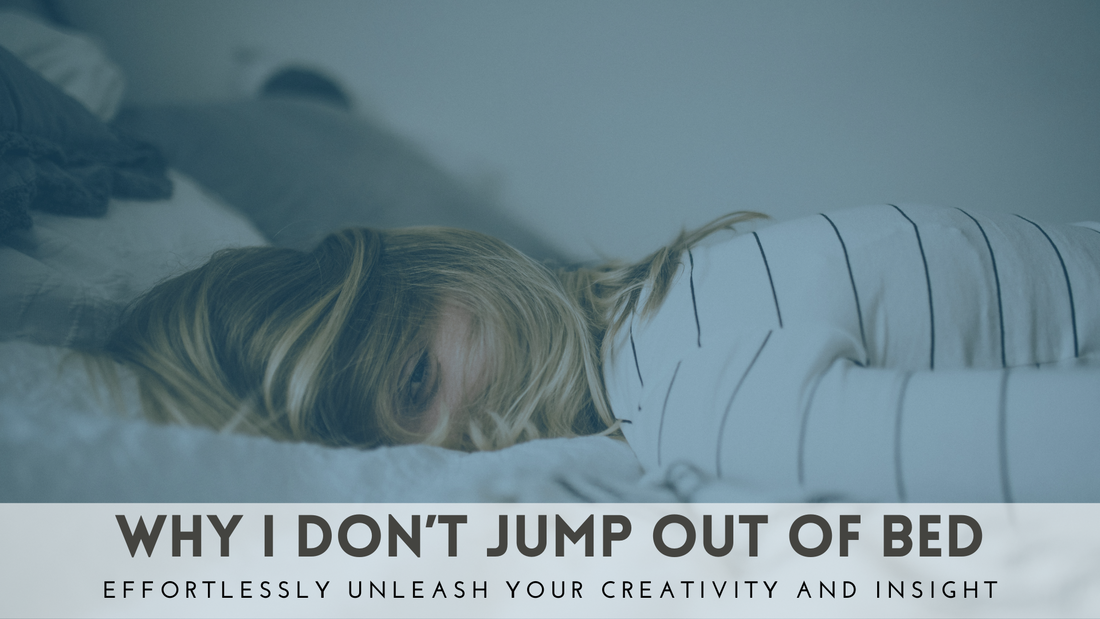
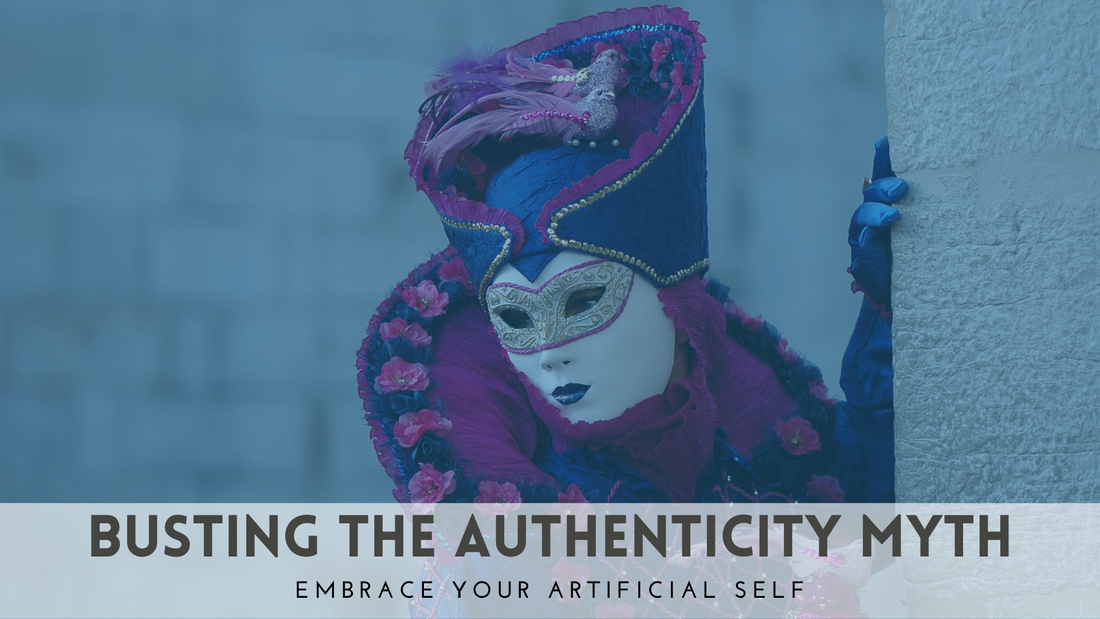
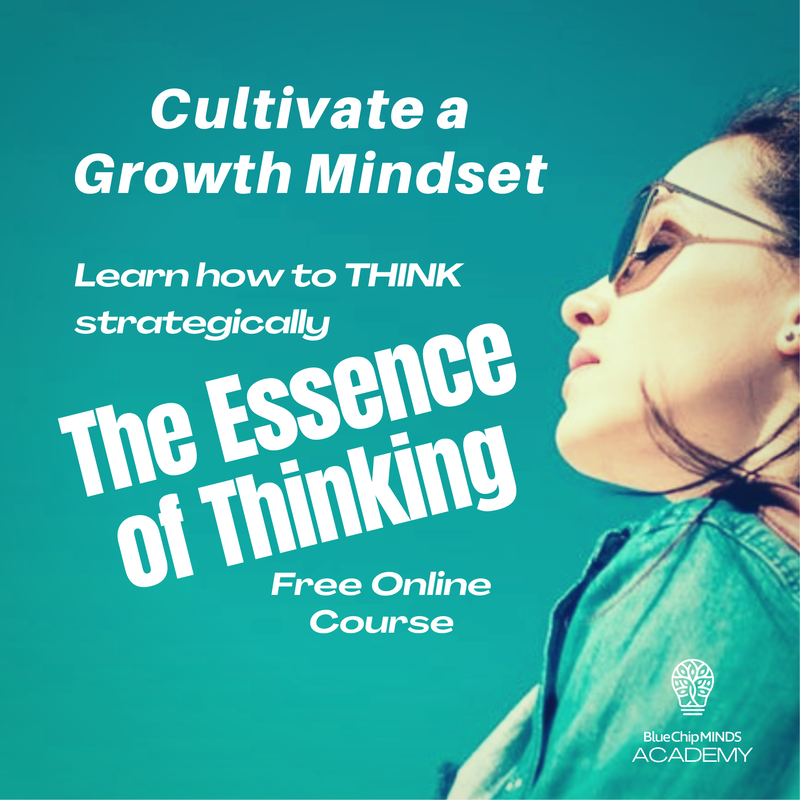
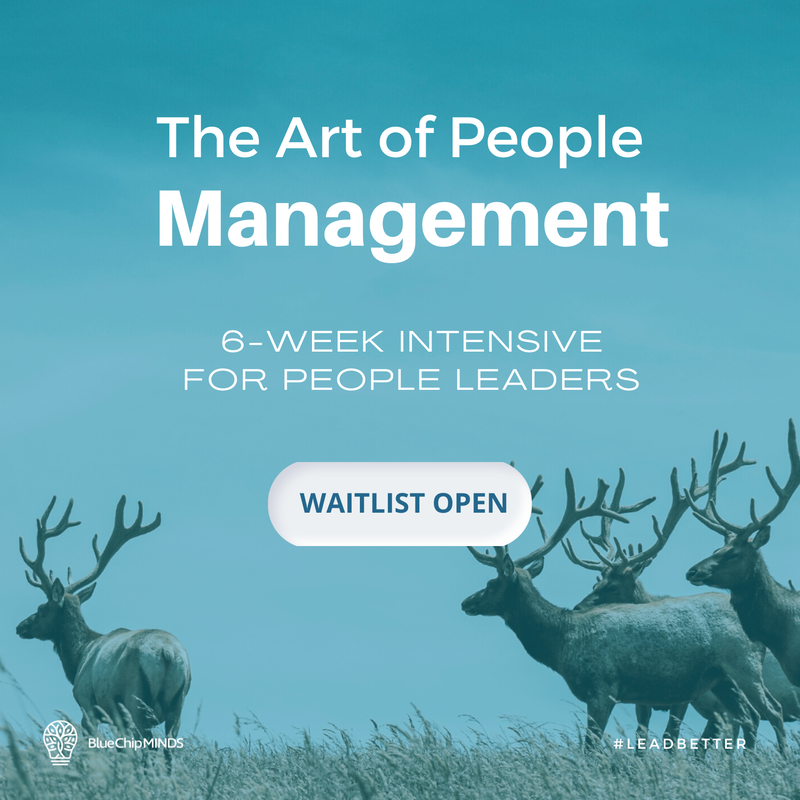
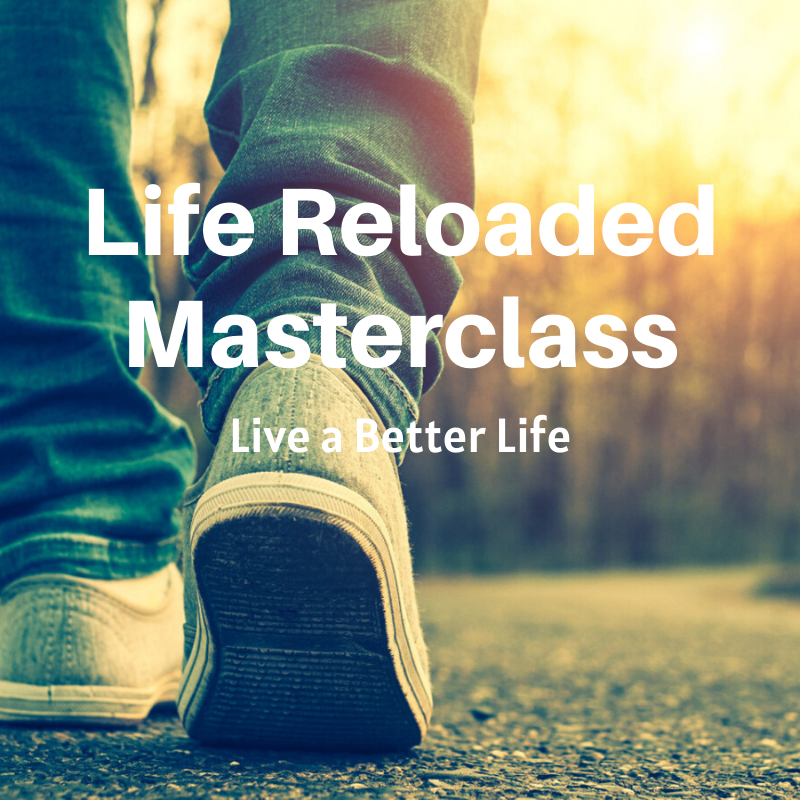
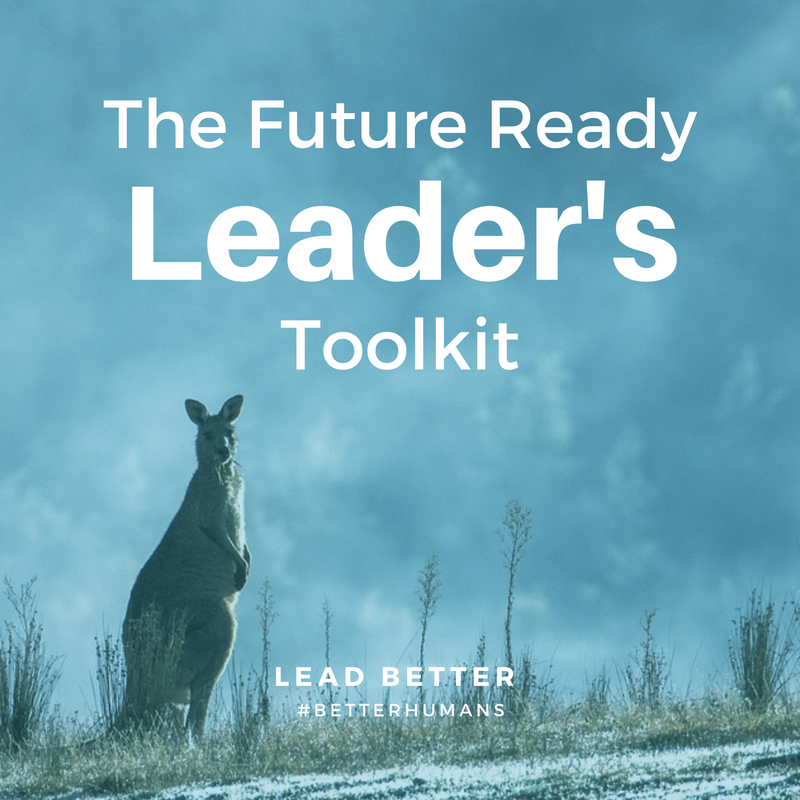
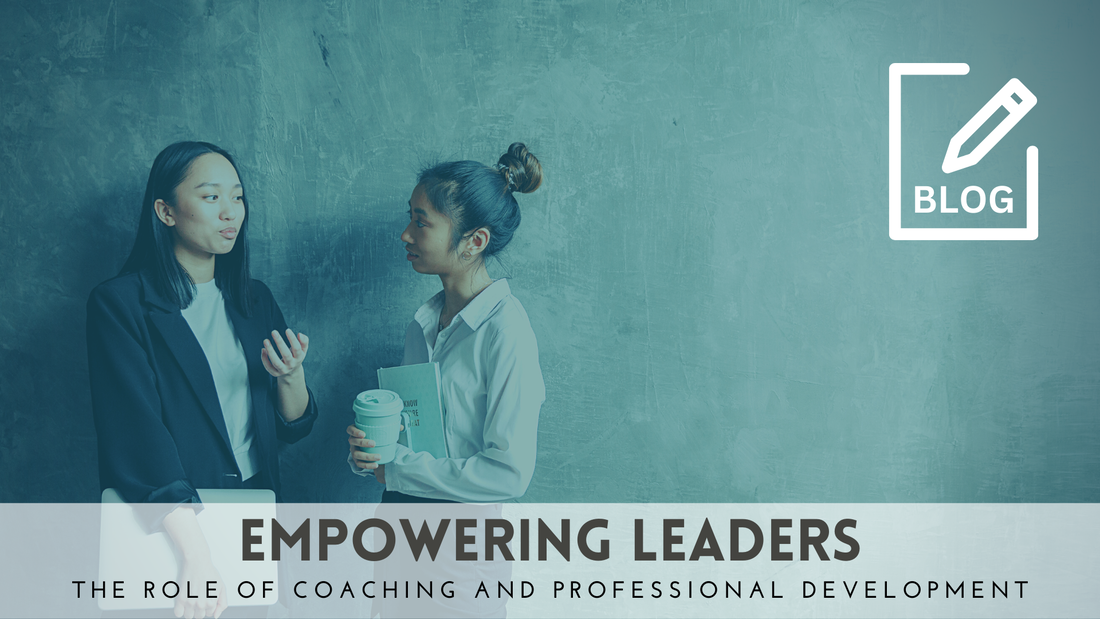
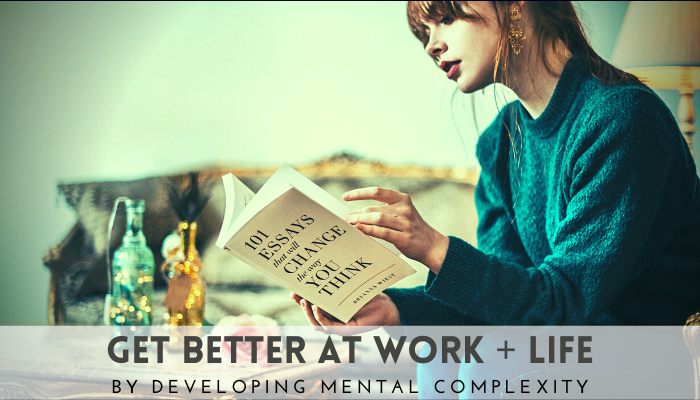
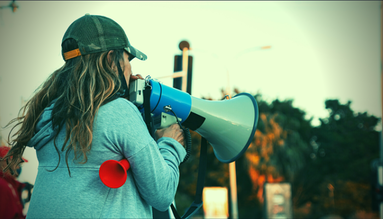
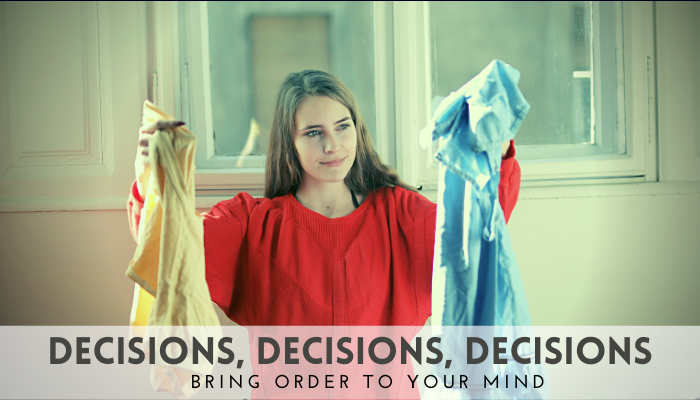
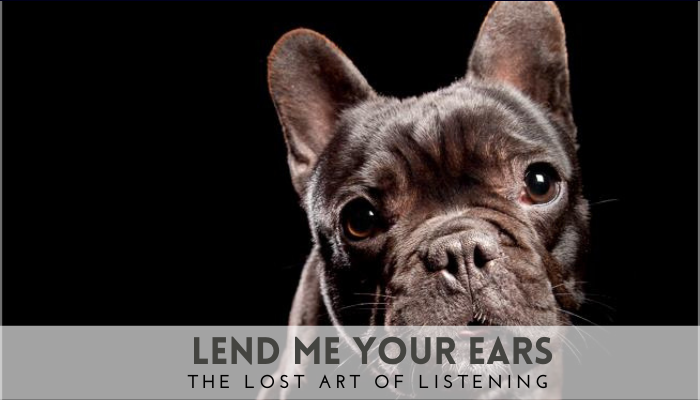
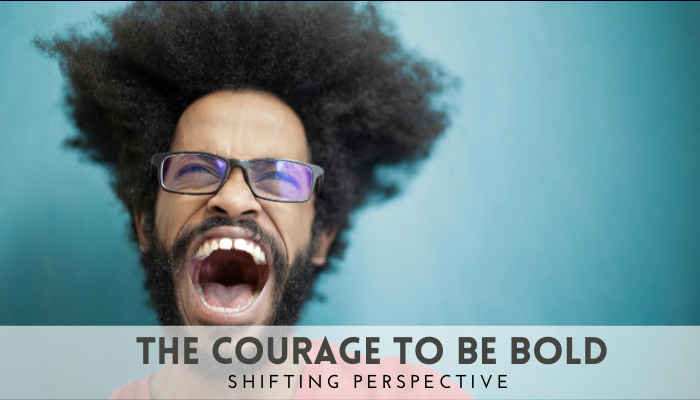
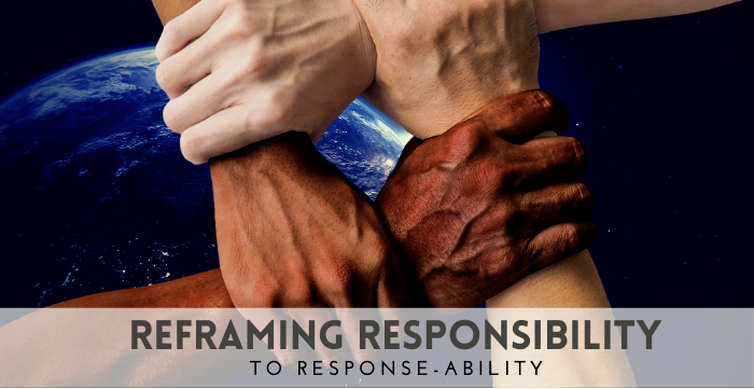

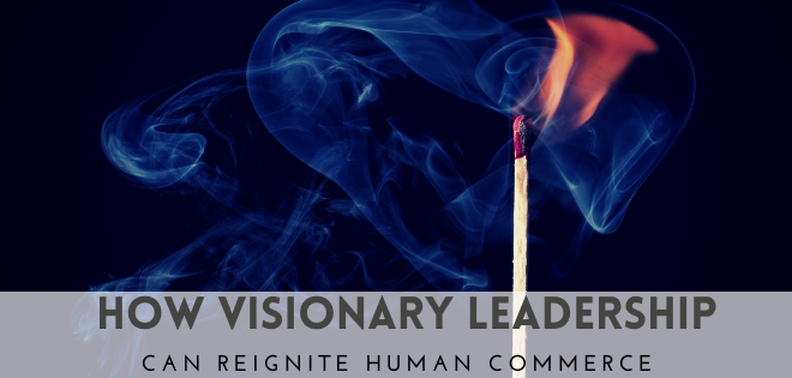
 RSS Feed
RSS Feed
